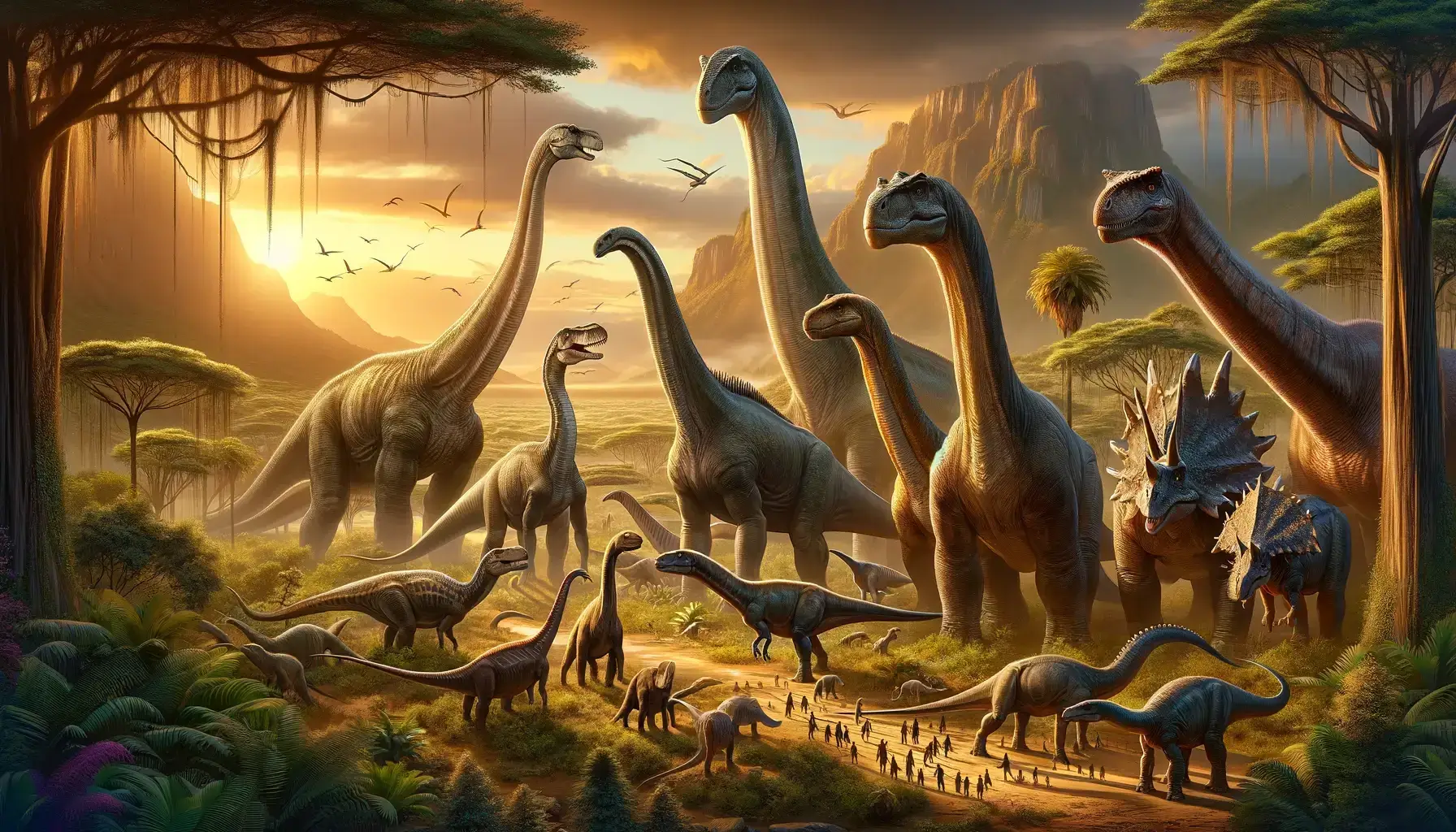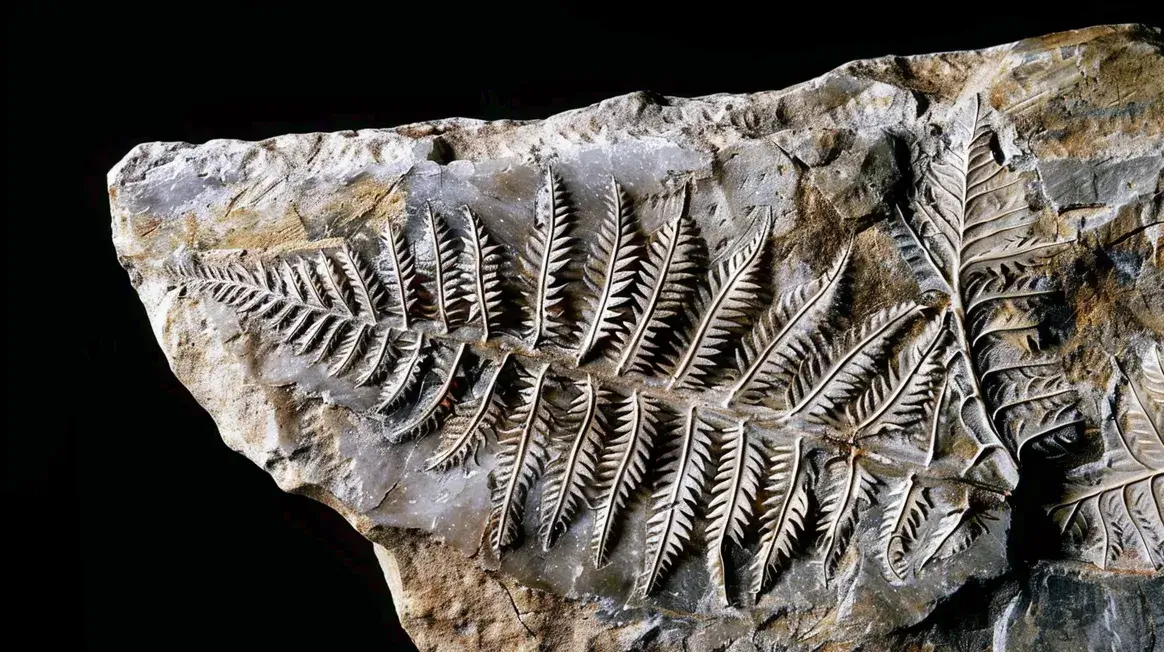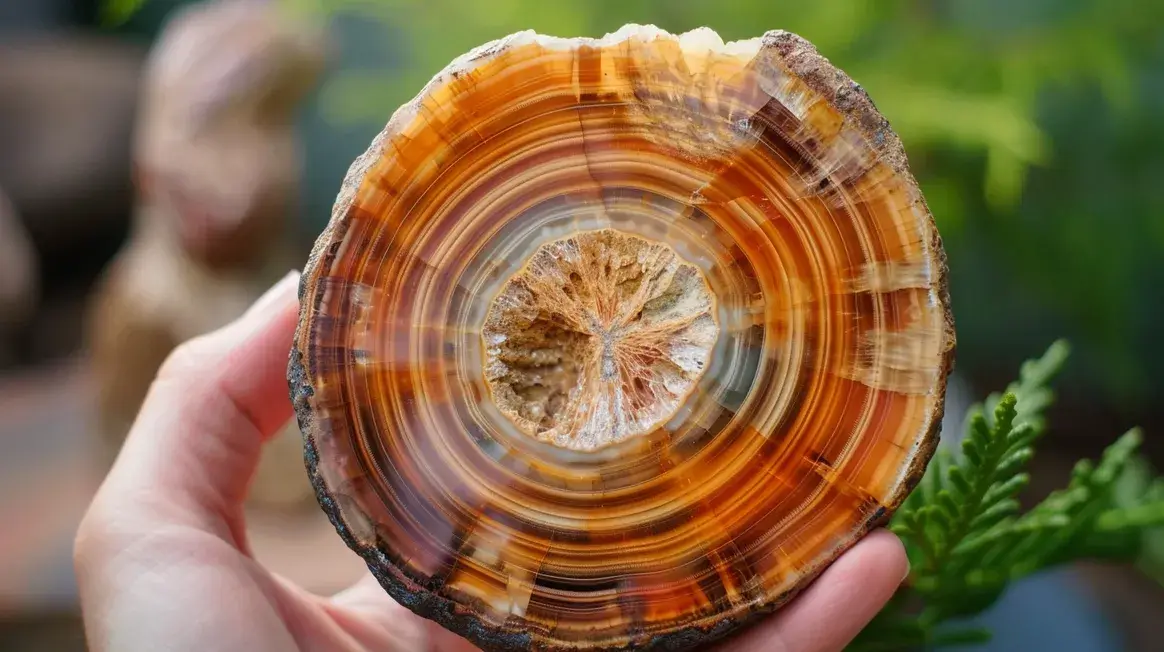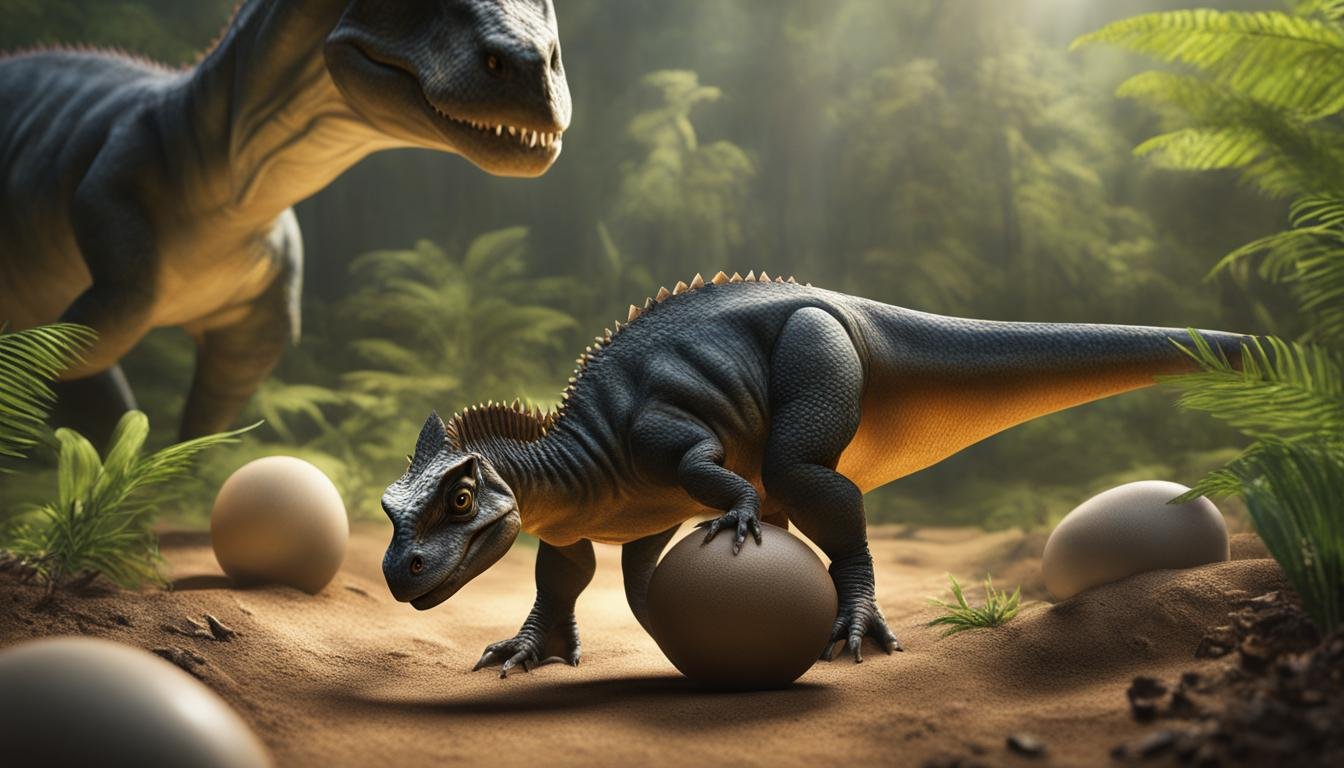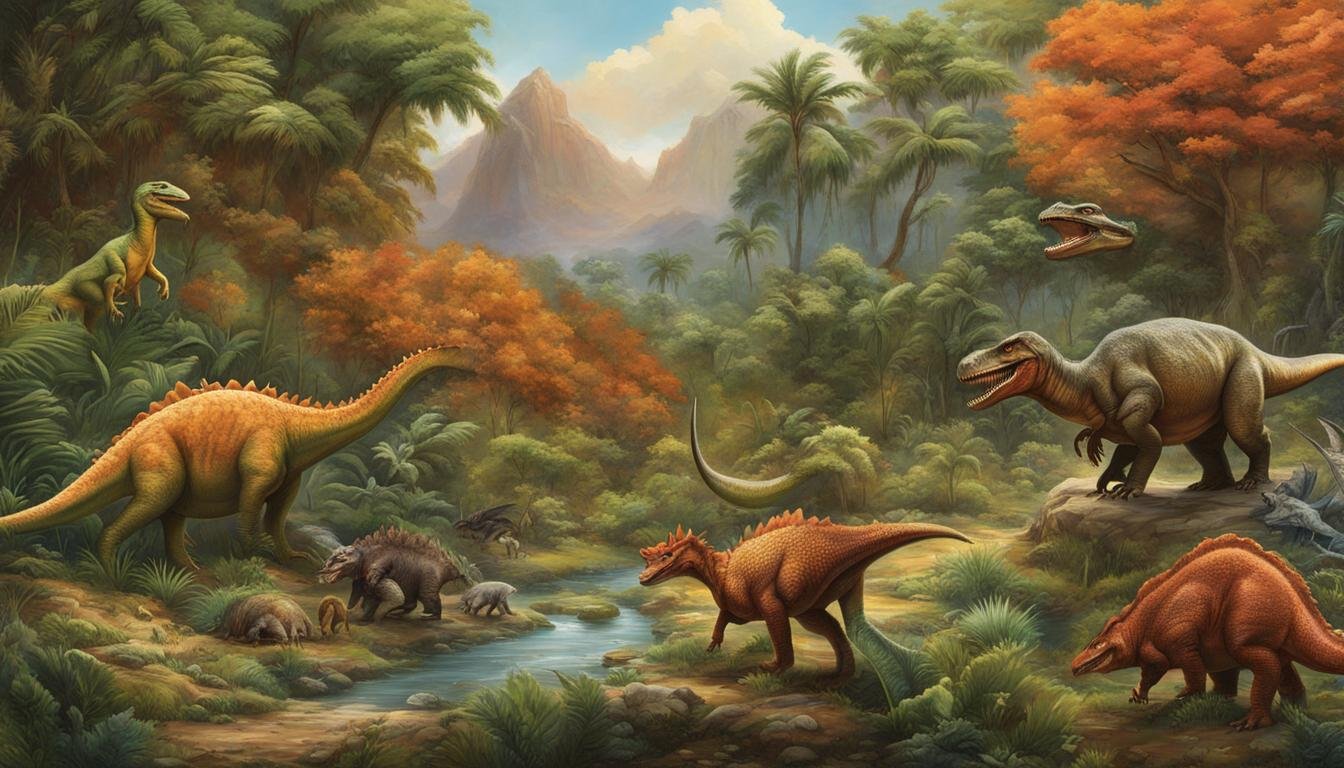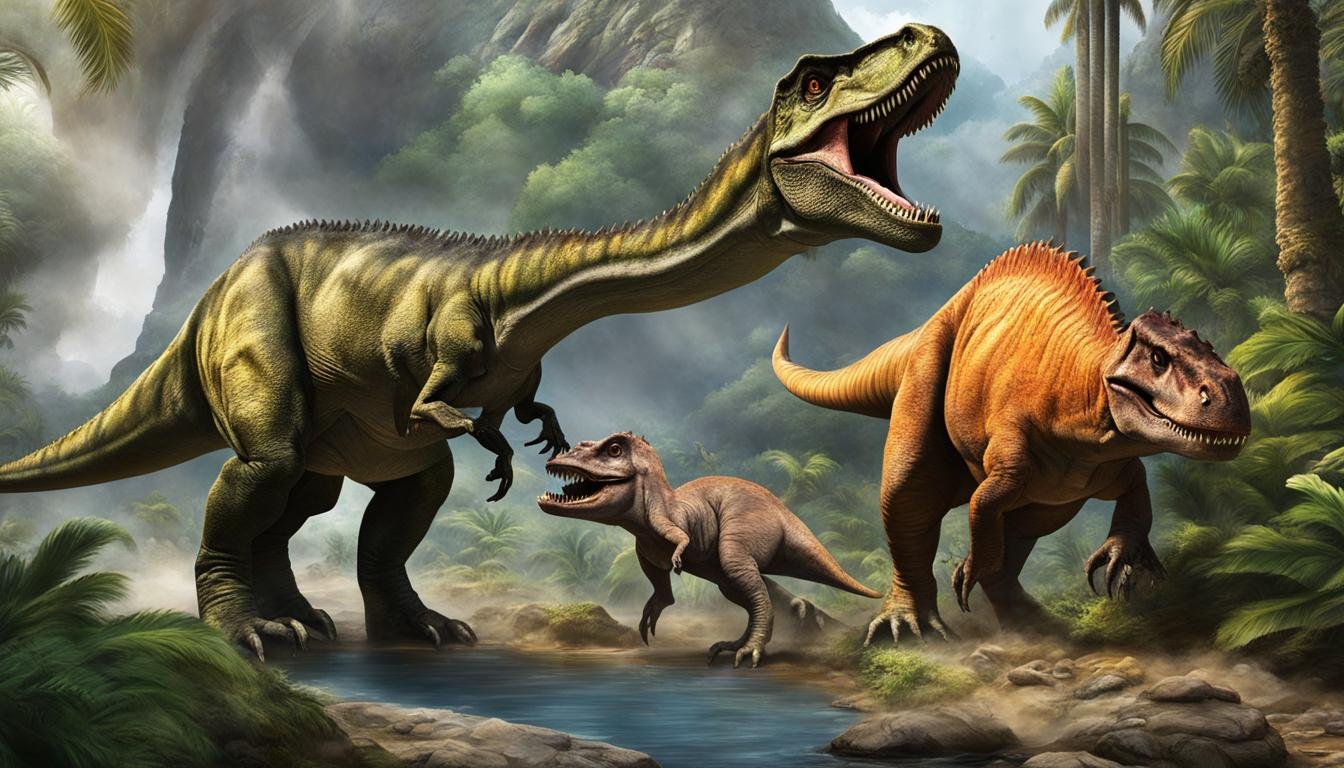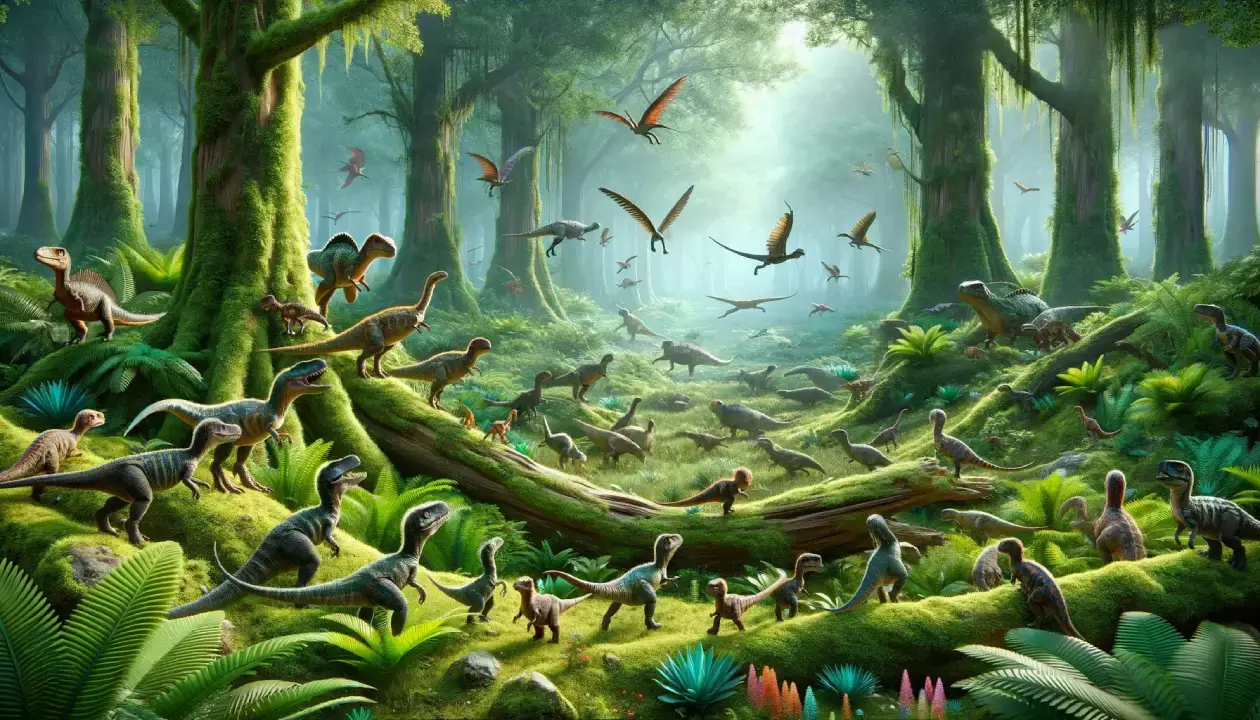Imagine striding through a prehistoric forest, the ground trembling under the weight of colossal creatures, the air resonant with the calls of the most gigantic beings to have ever walked the Earth. The dinosaurs hold a monumental space in our history, sparking curiosity and awe with their sheer size and grandeur.
Among them, some grew to sizes so immense that their very bones challenge the limits of our imagination. These Gigantic Giants were not just animals; they were living, breathing marvels of nature’s design, pushing the boundaries of what we believe possible in the animal kingdom.
Today, we step back millions of years to reveal the Top 10 Largest Dinosaurs of All Time and marvel at the giants that once roamed our planet.
| Rank | Dinosaur Name | Estimated Length |
|---|---|---|
| 10 | Mamenchisaurus | 23-30 meters (75-98 feet) |
| 9 | Paralititan | 25-30 meters (82-100 feet) |
| 8 | Puertasaurus | 30 meters (98 feet) |
| 7 | Sauroposeidon | 28-34 meters (92-112 feet) |
| 6 | Diplodocus | 27-35 meters (89-115 feet) |
| 5 | Ruyangosaurus | 25-35 meters (81-115 feet) |
| 4 | Patagotitan | 31-37 meters (102-121 feet) |
| 3 | Argentinosaurus | 30-35 meters (98-115 feet) |
| 2 | Maraapunisaurus | 30-40 meters (99-131 feet) |
| 1 | Supersaurus | 32-42 meters (105-138 feet) |
How We Sized Up the Titans of the Past
To bring you our definitive list of the largest dinosaurs, we’ve homed in on a key measurement: the full length from head to tail. This approach paints the most vivid picture of these giants’ impressive stature. While we at PrehistoricSaurus.com haven’t measured these colossal creatures ourselves, we’ve relied on the exhaustive research and reconstructions of renowned paleontologists. They’ve painstakingly pieced together fossilized fragments to estimate the total length of these dinosaurs, providing us with the awe-inspiring figures that you’ll find in this article. It’s from these scientific estimations that we’ve ranked our prehistoric giants, ready to take you on a journey back to when these titanic beasts ruled the land.
10. Mamenchisaurus
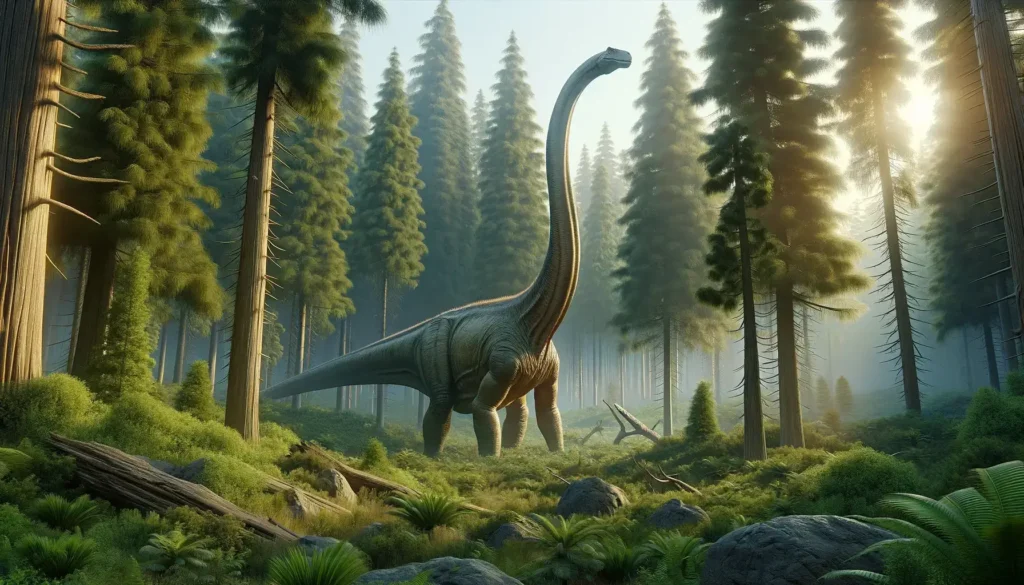
| Characteristic | Detail |
|---|---|
| Length | 22.9-29.9 meters (75-98 feet) |
| Weight | Not precisely known; |
| Habitat | China |
| Period | Late Jurassic, 160 million years ago |
| Diet | Herbivorous |
First on our list is the staggering Mamenchisaurus, a sauropod whose neck alone could rival the length of three school buses lined up end-to-end. Discovered in the lush forests of what is now China, this dinosaur stretched up to 98 feet (29.9 meters) from its snout to the tip of its tail.
The Mamenchisaurus didn’t just have length on its side; its neck made up half of its body length, a feature that likely helped it to reach high foliage for feeding. Little is known about its weight, but with such a towering frame, it’s not hard to envision this behemoth tipping the scales at several tonnes.
9. Paralititan
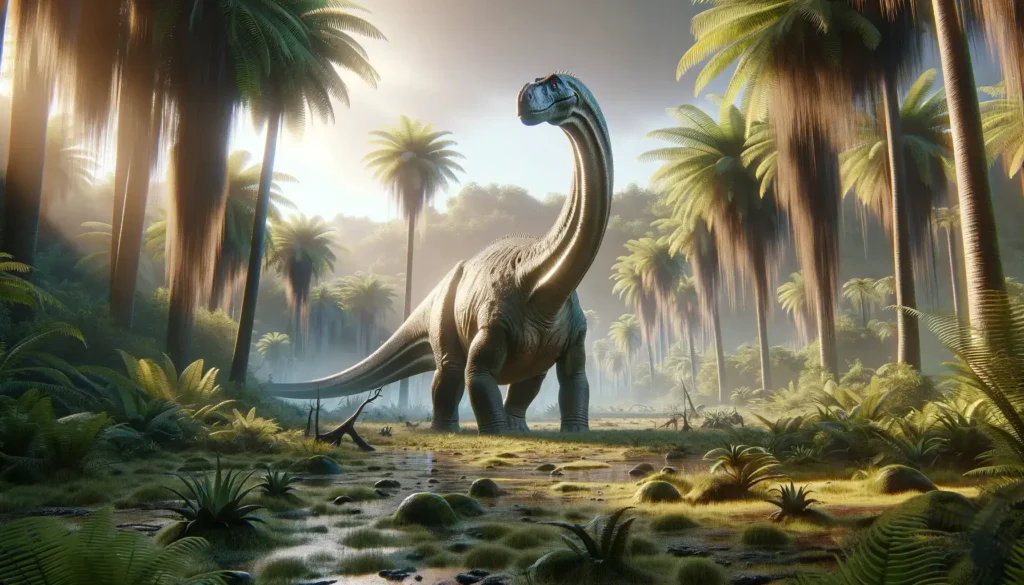
| Characteristic | Detail |
|---|---|
| Length | 25-30.5 meters (82-100 feet) |
| Weight | Estimated up to 59,000 kg (59 tonnes) |
| Habitat | Egypt |
| Period | Early Cretaceous, 125 million years ago |
| Diet | Herbivorous |
Next, we delve into the land of the pharaohs to discover Paralititan, a titanosaur that roamed the swamps of ancient Egypt. This dinosaur’s estimated length of up to 100 feet (30.5 meters) paints a picture of a creature so vast, it could easily peer into a second-story window.
While its bones tell of its incredible size, they also whisper tales of its environment, hinting that Paralititan may have been an adept swimmer, navigating Cretaceous waters with the same grace it did on land.
8. Puertasaurus
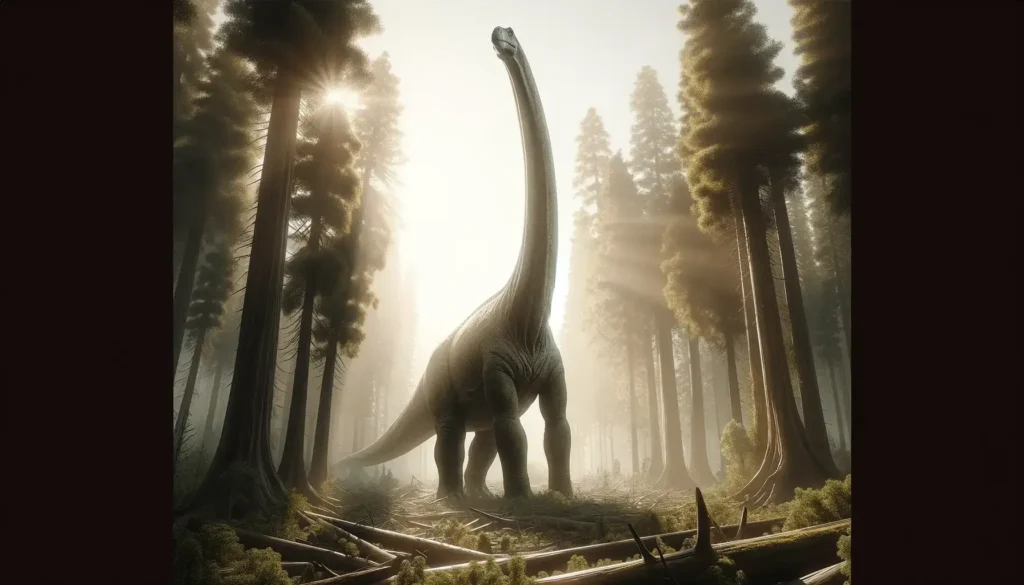
| Characteristic | Detail |
|---|---|
| Length | 29.9 meters (98 feet) |
| Weight | Estimated up to 100 tonnes |
| Habitat | Argentina |
| Period | Late Cretaceous, 94 million years ago |
| Diet | Herbivorous |
Continuing our journey, we encounter the Puertasaurus, a titanic presence in the Late Cretaceous period of Argentina. With a length of 98 feet (29.9 meters), this dinosaur was as long as a blue whale, the largest animal known to have ever existed.
Its massive frame supported by pillar-like legs, the Puertasaurus is believed to have been one of the heaviest creatures on land, with an estimated weight that could reach the vicinity of 100 tonnes.
7. Sauroposeidon
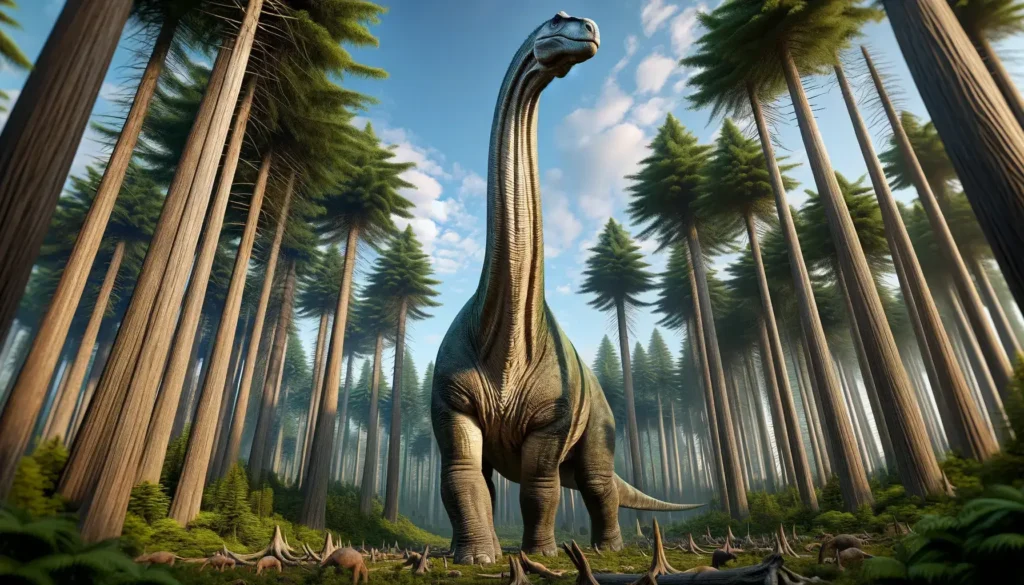
| Characteristic | Detail |
|---|---|
| Length | 28-34 meters (92-112 feet) |
| Weight | Estimated up to 60,000 kg (60 tonnes) |
| Habitat | Oklahoma, USA |
| Period | Early Cretaceous, 110 million years ago |
| Diet | Herbivorous |
Sauroposeidon, a name that translates to “earthquake god lizard,” once shook the ancient lands of North America with its massive size. It towered over its habitat, reaching skyward with a height that could rival a modern four-story building.
The Sauroposeidon was a spectacle of the Early Cretaceous period, believed to have stretched an astounding 112 feet (34 meters) from head to tail.
It’s not just the size that’s awe-inspiring but also the structure of its vertebrae, which suggests this dinosaur might just be the tallest of them all, reaching up to heights that would make even skyscrapers blink.
6. Diplodocus
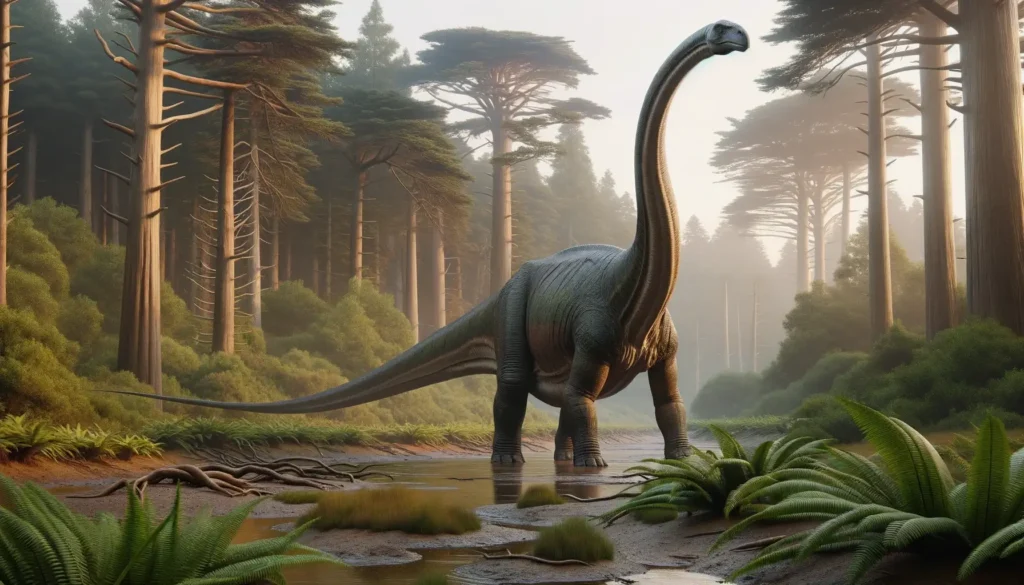
| Characteristic | Detail |
|---|---|
| Length | 27-35 meters (89-115 feet) |
| Weight | Estimated up to 16,000 kg (16 tonnes) |
| Habitat | Western United States |
| Period | Late Jurassic, 154 million years ago |
| Diet | Herbivorous |
Meet Diplodocus, the iconic long-necked, whip-tailed giant that’s often the star of dinosaur media. Diplodocus was the ultimate prehistoric stretch limo, with an estimated length of 115 feet (35 meters).
This Jurassic giant’s body was a masterpiece of evolution, perfectly designed to sweep the high canopies for food and whip its tail in defense, painting a living landscape that was as wild as it was wondrous.
5. Ruyangosaurus
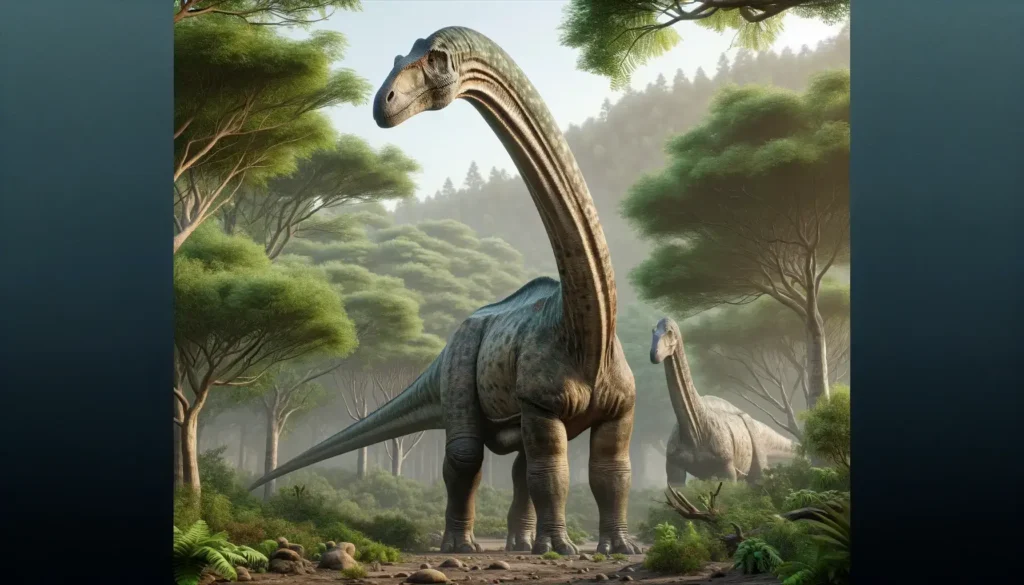
| Characteristic | Detail |
|---|---|
| Length | 24.7-35 meters (81-115 feet) |
| Weight | Estimated up to 75,000 kg (75 tonnes) |
| Habitat | China |
| Period | Late Jurassic, 160 million years ago |
| Diet | Herbivorous |
Ruyangosaurus, the lesser-known giant, strolled through the forests of China, standing tall among its contemporaries.
With its colossal size, the Ruyangosaurus may not have been the longest, but it was certainly up there with the heaviest. Imagine a creature that weighs as much as a blue whale, roaming the land with a grace that belied its massive stature. This dinosaur was a true marvel, a symbol of the incredible extremes that life on Earth can reach.
4. Patagotitan
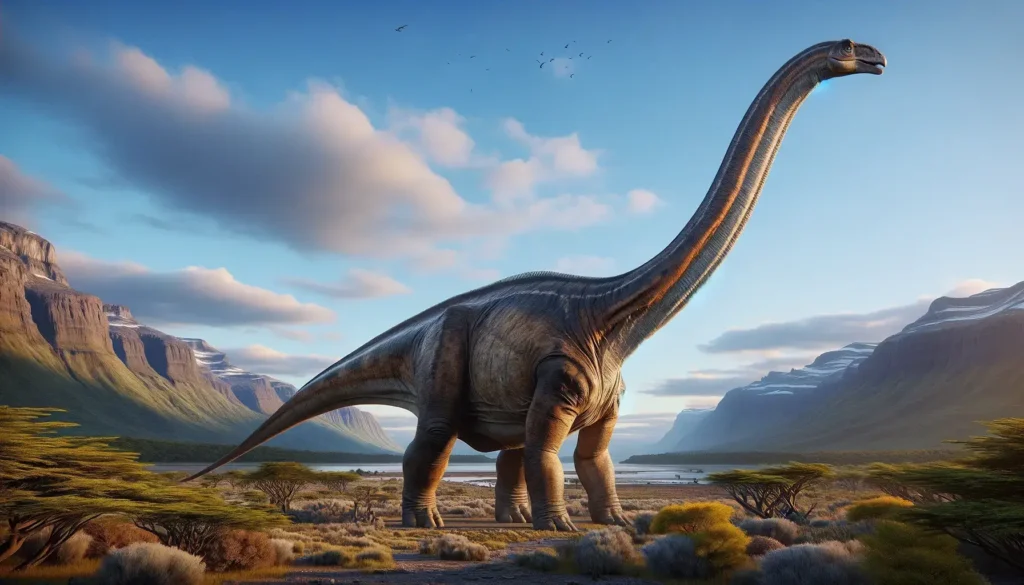
| Characteristic | Detail |
|---|---|
| Length | 31-37 meters (102-121 feet) |
| Weight | Estimated up to 77,000 kg (77 tonnes) |
| Habitat | Argentina |
| Period | Late Cretaceous, 100 million years ago |
| Diet | Herbivorous |
Patagotitan, the name itself evokes a sense of the epic, and rightly so. This massive creature was the heavyweight champion of the dinosaur world.
Lumbering across the ancient plains of Argentina, the Patagotitan wasn’t just large; it was a gargantuan presence that could inspire both terror and awe. With lengths surpassing 121 feet (37 meters), it’s a titan of history, a creature so massive that it seems to defy the very laws of biology.
3. Argentinosaurus
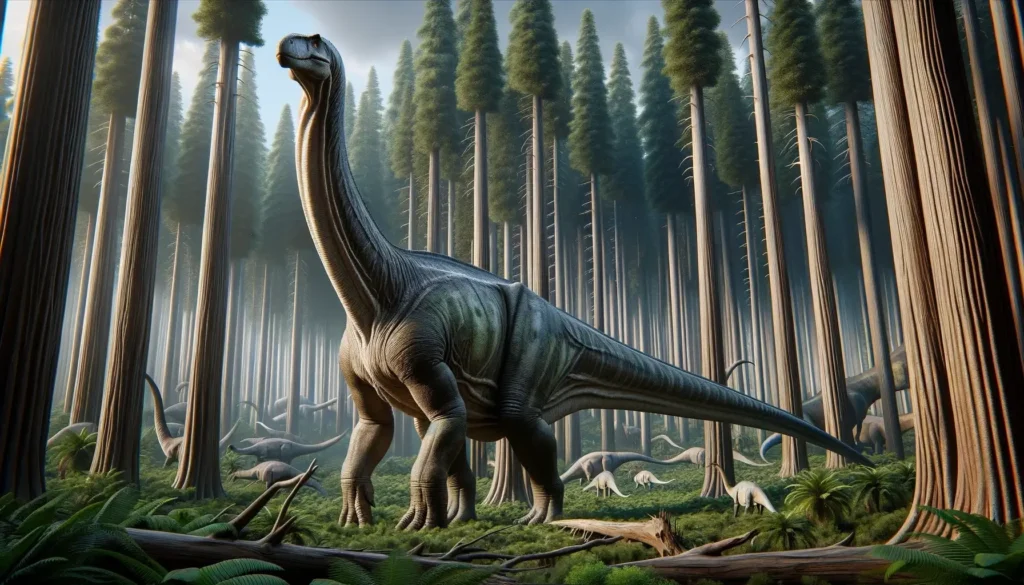
| Characteristic | Detail |
|---|---|
| Length | 30-35 meters (98-115 feet) |
| Weight | Estimated over 70,000 kg (70 tonnes) |
| Habitat | Argentina |
| Period | Late Cretaceous, 94 million years ago |
| Diet | Herbivorous |
The Argentinosaurus hails from the windswept plains of Argentina, a land that seems to have a penchant for producing some of the most gigantic dinosaurs ever to walk the Earth. This titanic beast was the heavyweight of the Late Cretaceous period, dominating its environment some 94 million years ago.
With bones that could dwarf most modern-day animals, the Argentinosaurus wasn’t just massive; it was an absolute unit. Its vertebrae alone were taller than a grown man, and it could have easily peered into a second-story window. A walk beside this dinosaur would feel like a stroll next to a living, breathing locomotive.
2. Maraapunisaurus
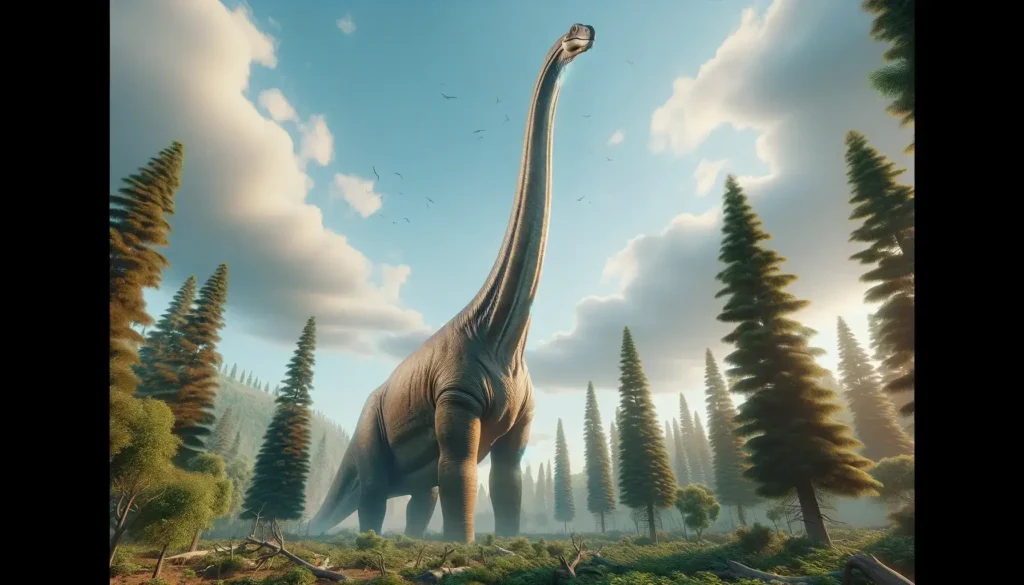
| Characteristic | Detail |
|---|---|
| Length | 30-40 meters (99-131 feet) |
| Weight | Estimated data not ascertained |
| Habitat | North America |
| Period | Late Jurassic, 154 million years ago |
| Diet | Herbivorous |
Next on our list is the Maraapunisaurus, a name less familiar but no less deserving of our wonder and amazement. This Late Jurassic behemoth was one of the longest necked dinosaurs ever, stretching its serpentine neck across the ancient forests of North America.
Although much of Maraapunisaurus’s life story remains shrouded in the mists of prehistory, the sheer estimated size of this creature gives it a legendary status among paleontologists and dinosaur enthusiasts alike. Its extraordinary length is evidence of the incredible biological feats achieved by sauropod dinosaurs.
1. Supersaurus
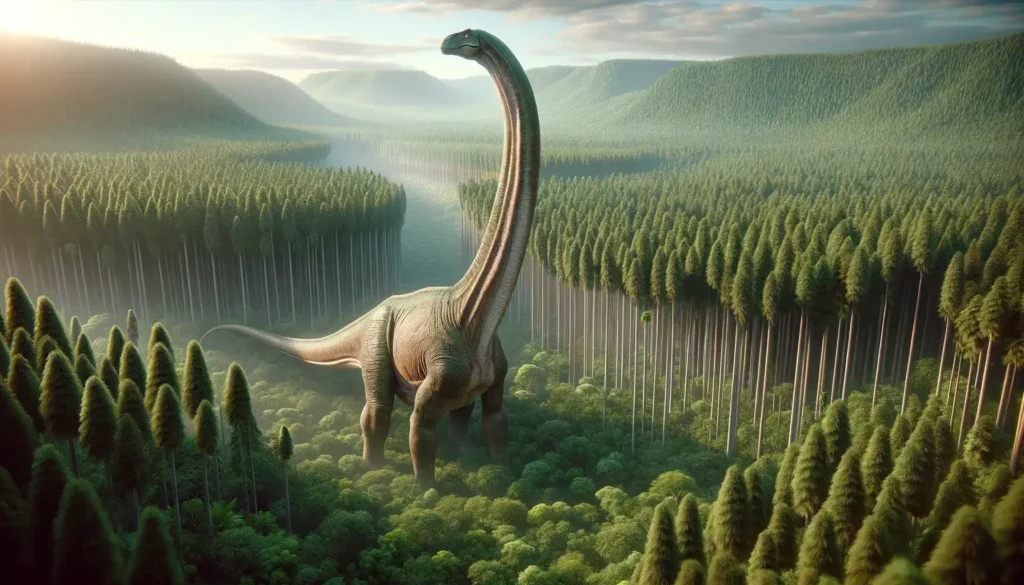
| Characteristic | Detail |
|---|---|
| Length | 32-42 meters (105-138 feet) |
| Weight | Estimated up to 50,000 kg (50 tonnes) |
| Habitat | Colorado, USA, and Portugal |
| Period | Late Jurassic, 153 million years ago |
| Diet | Herbivorous |
At the pinnacle of our list stands the Supersaurus, the embodiment of the word “superlative.” This Late Jurassic giant is believed to be the longest dinosaur that ever existed, with estimates placing it at an earth-shattering length of 105-138 feet (32-42 meters).
The Supersaurus, as its name might suggest, was not just big; it was colossal. This diplodocid dinosaur had a neck that could span the width of a basketball court, making it an iconic figure in the pantheon of prehistoric giants. Walking under the belly of a Supersaurus would be akin to strolling beneath a living suspension bridge.
Conclusion
In the dance of prehistoric titans, the colossal might of the largest dinosaurs often eclipses their smaller counterparts. Yet, in the shadow of these behemoths roamed an array of mini marvels, each with a tale as fascinating as the giants. From the resourceful hunters to the pint-sized plant-eaters, these diminutive dynamos showcased that size wasn’t the only route to survival. As we marvel at the sheer scale and grandeur of the largest dinosaurs, let’s not forget the small yet significant roles their lesser-known peers played in the ancient ecosystem. For those eager to dive into the stories of these compact creatures, our list of the Top 10 Smallest Dinosaurs awaits, offering a vivid window into the life of the Mesozoic’s more minute inhabitants.

